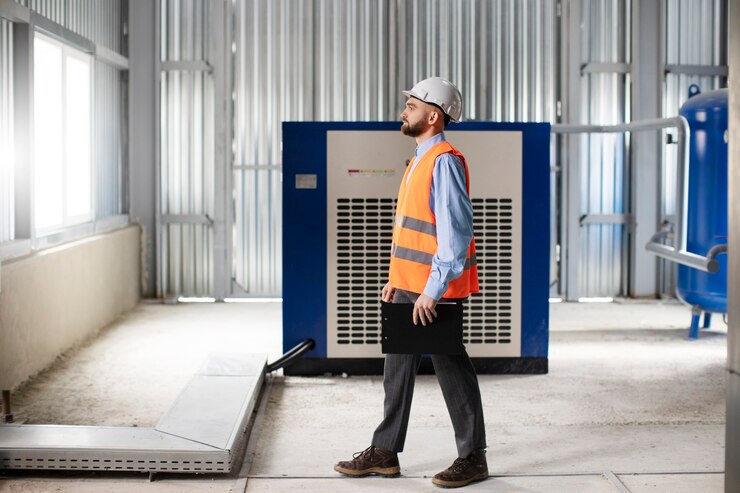Living in New Zealand means experiencing a diverse climate, from warm summers to chilly winters. Ensuring comfort in both seasons requires efficient heating and cooling solutions. This is where heat pumps come into play. They are versatile, energy-efficient, and can provide year-round comfort for homes and businesses alike. This guide explores the best heat pump solutions available in NZ, their benefits, and how to choose the right one for your needs. Heat pumps are an essential investment for any property in New Zealand, promising not just immediate comfort but also long-term savings and environmental benefits.
The Importance of Heating Solutions in NZ
In a country like New Zealand, where the weather can vary significantly, having a reliable heating solution is essential. Heat pumps offer an efficient way to maintain a comfortable indoor environment regardless of the external temperature. Whether it’s for a cozy home or a bustling office, the right heat pump can make a substantial difference in comfort and energy costs. The fluctuating temperatures and seasonal changes in NZ necessitate a heating solution that is both dependable and cost-effective. Investing in a high-quality heat pump ensures that you and your family stay warm during the cold months and cool during the hot summer days.
Overview of Heat Pumps
Heat pumps work by transferring heat from one place to another, providing both heating and cooling. They are highly efficient compared to traditional heating systems because they move heat rather than generate it. This makes them a popular choice for both residential and commercial applications in New Zealand. The technology behind heat pumps has advanced significantly over the years, making them more efficient and reliable than ever. They operate on the principle of heat transfer, similar to how a refrigerator works, but on a larger scale, making them suitable for entire buildings.
Types of Heat Pumps
There are several types of heat pumps, each with its unique features and benefits. Understanding these can help you choose the best solution for your specific needs. The main types include air source heat pumps, ground source heat pumps, and variations like ducted and ductless systems. Each type has its advantages and ideal use cases, depending on the specific requirements of the property and the local climate.
Air Source Heat Pumps
Air source heat pumps are the most common type and are particularly well-suited for the mild NZ climate. They extract heat from the outside air and transfer it indoors. During the summer, the process is reversed to cool the indoor space. These systems are relatively easy to install and can be used in a variety of settings, from small apartments to large commercial buildings. Their popularity is due to their efficiency and the fact that they can be used year-round, providing both heating and cooling as needed.
Ground Source Heat Pumps
Ground source heat pumps, also known as geothermal heat pumps, use the stable temperature of the ground to provide heating and cooling. They are incredibly efficient but require more significant installation efforts and initial investment. These systems involve burying a network of pipes underground to exchange heat with the earth, taking advantage of the relatively constant underground temperature. While the upfront costs are higher, the long-term energy savings can be substantial, making them an excellent option for those looking to invest in a sustainable and efficient heating solution.
Ducted vs. Ductless Systems
- Ducted Systems: These systems distribute conditioned air through a network of ducts. They are ideal for larger buildings and can provide even temperature distribution throughout the space. Ducted systems are a great option for new constructions or major renovations where installing ductwork is feasible. They offer a seamless and unobtrusive way to maintain consistent temperatures throughout a property.
- Ductless Systems: Also known as mini-split systems, these do not require ducts and are perfect for homes without existing ductwork. They offer flexibility and are easy to install. Ductless systems are ideal for retrofitting older homes or adding heating and cooling to specific rooms without the need for extensive renovations. They are also highly energy-efficient and can be controlled independently, allowing for customized comfort in different areas of the home.
Benefits of Heat Pumps
Heat pumps offer numerous benefits that make them a preferred choice for many households and businesses in New Zealand. Their advantages extend beyond just heating and cooling, impacting energy consumption, cost savings, and environmental sustainability.
Energy Efficiency
One of the most significant advantages of heat pumps is their energy efficiency. They can provide up to three times more heating and cooling than the energy they consume, making them an eco-friendly option. This efficiency is due to their ability to transfer heat rather than generate it, which requires much less energy. By choosing a heat pump, you can significantly reduce your carbon footprint and contribute to a more sustainable future.
Cost Savings
Due to their high efficiency, heat pumps can significantly reduce your energy bills. While the initial investment might be higher than traditional heating systems, the long-term savings on utility costs are substantial. Over time, the energy savings can offset the initial cost, making heat pumps a financially sound investment. Additionally, many regions offer incentives and rebates for installing energy-efficient systems, further reducing the overall cost.
Environmental Impact
Heat pumps reduce carbon emissions by using renewable energy sources. By choosing a heat pump, you’re not only saving money but also contributing to a greener planet. They produce fewer greenhouse gasses compared to conventional heating systems, helping to mitigate climate change. The use of renewable energy and the reduction in fossil fuel consumption make heat pumps an environmentally responsible choice for any property.
Choosing the Right Heat Pump
Selecting the right heat pump involves considering several factors to ensure it meets your specific needs. The type of heat pump, its capacity, and its efficiency are all crucial elements to evaluate. Proper selection can enhance comfort, reduce energy consumption, and lower operating costs.
Assessing Your Needs
Determine whether you need a heat pump for heating, cooling, or both. Also, consider if you need a solution for a single room or an entire building. Assess your specific requirements, such as the size of the area to be conditioned, the climate in your region, and your budget. Understanding your needs will help narrow down the options and ensure you choose a system that is efficient and cost-effective.
Evaluating Home or Business Size
The size of your space will influence the type and capacity of the heat pump you need. Larger areas might require more powerful or multiple units to ensure adequate heating and cooling. Accurate sizing is essential to avoid issues such as insufficient heating or cooling, high energy consumption, and increased wear and tear on the system. Consulting with a professional can help determine the appropriate size and configuration for your property.
Climate Considerations
New Zealand’s climate varies from region to region. Choose a heat pump that can perform efficiently in your local climate conditions. For instance, some heat pumps are designed to work better in colder temperatures, while others are optimized for milder climates. Understanding the climate demands of your area will help you select a heat pump that operates efficiently and effectively, ensuring year-round comfort.
Installation Process
Proper installation is crucial for the optimal performance of your heat pump. While some may consider DIY installation, professional installation ensures that the system is set up correctly and operates efficiently. The installation process involves several steps, from site assessment to system testing, each of which is vital to the system’s performance and longevity.
Professional Installation vs. DIY
- Professional Installation: Guarantees that the heat pump is installed according to manufacturer specifications, ensuring warranty validity and optimal performance. Professional installers have the expertise to handle complex installations, ensure proper connections, and fine-tune the system for maximum efficiency.
- DIY Installation: While potentially cheaper, DIY installation might void warranties and result in suboptimal performance if not done correctly. DIY installation requires a good understanding of HVAC systems and the ability to follow detailed instructions meticulously. Mistakes during installation can lead to operational issues, increased energy consumption, and safety hazards.
Steps Involved in Installation
- Site Assessment: Evaluating the best location for the unit, considering factors like sunlight exposure, airflow, and accessibility.
- Mounting the Unit: Ensuring it is securely attached and properly aligned, preventing vibrations and noise issues.
- Connecting Components: Linking the indoor and outdoor units, ensuring proper refrigerant and electrical connections.
- Testing the System: Ensuring everything is functioning correctly, checking for leaks, and calibrating the system for optimal performance.
Importance of Proper Installation
Proper installation affects the efficiency, performance, and lifespan of your heat pump. A poorly installed unit can lead to higher energy bills, frequent repairs, and a shorter operational life. Ensuring professional installation not only guarantees optimal performance but also provides peace of mind, knowing that your investment is protected and functioning at its best. Proper installation is the foundation for reliable and efficient operation, minimizing the risk of issues down the line.
Maintenance and Care
Maintaining your heat pump is essential to ensure its longevity and efficiency. Regular maintenance routines help keep the system running smoothly, prevent breakdowns, and maintain energy efficiency. Proper care involves routine checks, cleaning, and addressing any minor issues before they become major problems.
Regular Maintenance Routines
Regular maintenance includes tasks such as cleaning filters, checking refrigerant levels, and inspecting the overall condition of the unit. These tasks help maintain optimal performance and prevent unexpected breakdowns. Scheduling annual maintenance with a professional can ensure that your heat pump operates efficiently year-round. Regular maintenance not only enhances performance but also extends the lifespan of the system, protecting your investment.
Troubleshooting Common Issues
Common issues with heat pumps include reduced airflow, strange noises, and inadequate heating or cooling. Troubleshooting these problems early can prevent more significant issues and costly repairs. Understanding common problems and their solutions can help you address minor issues promptly, ensuring continuous comfort and efficiency. Consulting with a professional when needed can prevent small issues from escalating into major repairs.
Long-Term Care Tips
Long-term care for your heat pump involves consistent monitoring and maintenance. Keep the area around the unit clean and free of debris, and ensure that the outdoor unit is not obstructed. Regularly check for signs of wear and tear and address any issues promptly. Proper long-term care ensures that your heat pump remains efficient and reliable, providing consistent comfort and savings over its lifespan.
Innovative Features of Modern Heat Pumps
Modern heat pumps come with a range of innovative features designed to enhance efficiency, comfort, and convenience. These features make heat pumps more user-friendly and efficient, adapting to the needs of modern homes and businesses.
Smart Technology Integration
Many modern heat pumps are equipped with smart technology, allowing you to control them remotely via smartphone apps. This feature provides convenience and helps optimize energy usage by adjusting settings based on your preferences and schedule. Smart technology integration allows for precise control, ensuring that your home or business is always at the desired temperature.
Enhanced Energy Efficiency
Advancements in technology have led to heat pumps with improved energy efficiency. Features like variable speed compressors and advanced refrigerants help maximize efficiency and reduce energy consumption. Enhanced energy efficiency means lower utility bills and a smaller environmental footprint, making heat pumps an attractive choice for eco-conscious consumers.
Noise Reduction Features
Newer heat pump models are designed to operate more quietly, making them suitable for installation in noise-sensitive areas. Noise reduction features ensure a comfortable indoor environment without the disturbance of loud operating noises. Quiet operation enhances the overall comfort of your space, making heat pumps ideal for residential and commercial settings.
Cost Considerations
Understanding the cost implications of installing and operating a heat pump is crucial. While heat pumps offer long-term savings, the initial investment and ongoing costs should be considered.
Initial Investment
The initial cost of a heat pump system includes the unit price, installation, and any necessary modifications to your property. While the upfront cost may be higher than traditional systems, the long-term benefits often outweigh the initial investment. Investing in a high-quality heat pump ensures efficient operation, reliability, and long-term savings on energy bills.
Long-Term Savings
Heat pumps are known for their efficiency, which translates to lower energy bills over time. The savings on utility costs can offset the initial investment, making heat pumps a cost-effective solution in the long run. Additionally, heat pumps require less maintenance and have a longer lifespan compared to traditional heating systems, further enhancing their value.
Financing Options
Many providers offer financing options to help spread the cost of purchasing and installing a heat pump. Exploring these options can make the initial investment more manageable and allow you to enjoy the benefits of a heat pump sooner. Financing options provide flexibility and make it easier for homeowners and businesses to invest in efficient and sustainable heating solutions.
Conclusion
Investing in a heat pump for your home or business in New Zealand is a smart choice for maintaining comfort year-round. Heat pumps offer numerous benefits, including energy efficiency, cost savings, and environmental sustainability. By understanding the different types of heat pumps, their features, and the importance of professional installation and maintenance, you can make an informed decision that meets your specific needs. Whether you’re looking to upgrade your current system or install a new one, heat pumps provide a reliable and efficient solution for any property. Embrace the benefits of heat pumps and enjoy a comfortable, eco-friendly living environment.
FAQs about Heat Pumps in NZ
How do heat pumps work?
Heat pumps transfer heat from one place to another, providing both heating and cooling efficiently.
Are heat pumps energy-efficient?
Yes, heat pumps are highly energy-efficient, often providing more heating and cooling than the energy they consume.
What are the benefits of a ductless system?
Ductless systems are easy to install, highly efficient, and perfect for homes without existing ductwork.
How often should I maintain my heat pump?
It’s recommended to schedule professional maintenance at least once a year for optimal performance.
Can heat pumps operate in cold climates?
Yes, modern heat pumps are designed to work efficiently even in colder climates.
What is the lifespan of a heat pump?
With proper maintenance, heat pumps can last 15-20 years or more.
Are there financing options available for heat pumps?
Many providers offer financing options to help manage the initial investment cost.
Do heat pumps help reduce carbon emissions?
Yes, heat pumps are environmentally friendly and help reduce carbon emissions by using renewable energy sources.
Keep an eye for more news & updates on EssentialTribune.com!








